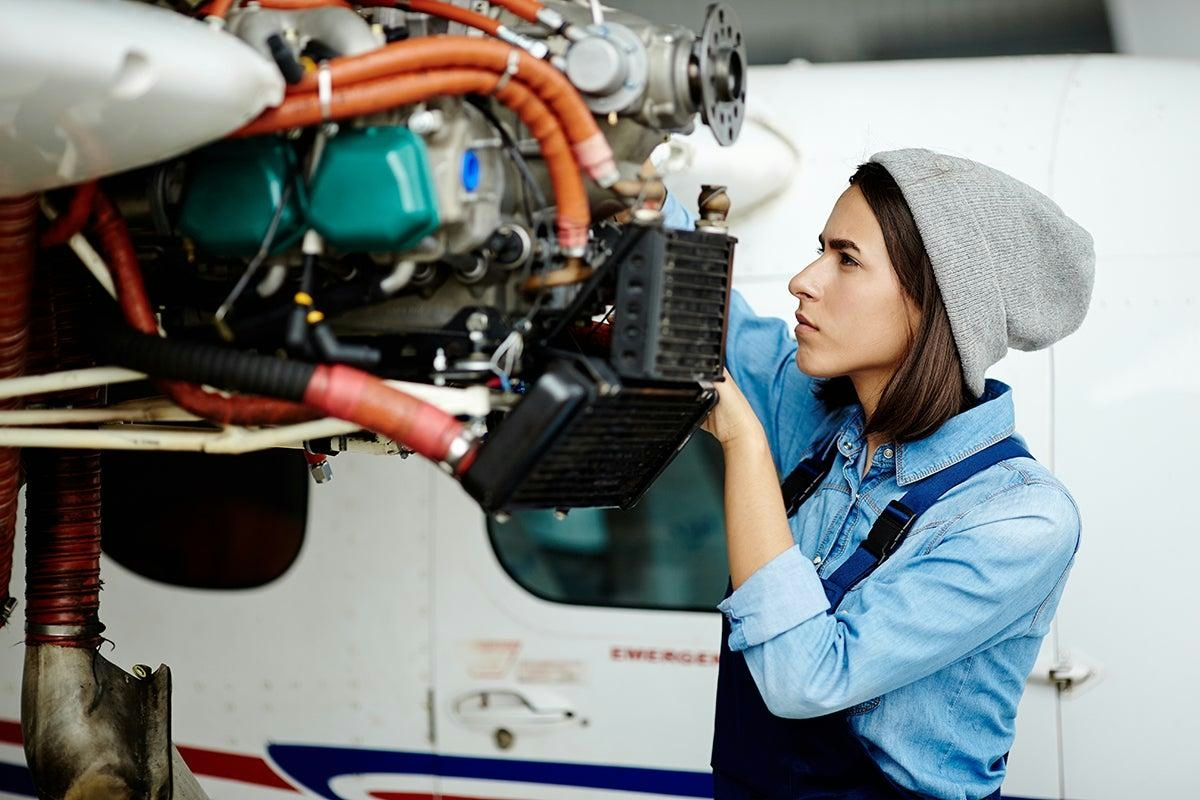AeroGenie — Your Intelligent Copilot.
Trending
Categories
Abednego Cites Maintenance Issues and Other Factors Hindering Aviation Talent Development

Abednego Cites Maintenance Issues and Other Factors Hindering Aviation Talent Development
Galadima Abednego, President of the National Association of Aircraft Pilots and Engineers (NAAPE), has drawn attention to several persistent challenges obstructing the growth of aviation talent in Nigeria. In a recent interview, he identified inadequate Maintenance, Repair, and Overhaul (MRO) infrastructure, talent poaching, and the continued reliance on expatriate workers as key factors impeding the development of local pilots and engineers.
Challenges in Maintenance and Talent Development
Abednego emphasized that the absence of a strong MRO sector remains a critical barrier. He explained that Nigeria struggles to establish a robust MRO framework capable of absorbing and nurturing its aviation professionals. Without sufficient MRO facilities, young maintenance engineers find it difficult to acquire the practical experience necessary for career progression. Airlines often prefer to recruit experienced personnel from competitors rather than invest in training new talent, perpetuating a cycle of talent migration within the industry.
This competitive environment has intensified the struggle for skilled professionals, with airlines increasingly engaging in talent poaching. The financial burden on aspiring pilots and engineers is substantial, as the cost of obtaining essential certifications, such as type ratings, can exceed N30 million. This expense discourages many potential entrants and their families, while job opportunities remain limited due to the industry's constrained capacity.
Expatriate Quotas and Industry Implications
Abednego also highlighted the ongoing issue of expatriate quotas. Despite the availability of qualified local talent, some airlines—particularly those serving the oil and gas sector—continue to employ expatriates, often from Eastern Europe, citing immediate readiness and cost considerations. He noted the difficulty posed by the aging of highly experienced professionals and the struggle of younger personnel to gain sufficient experience. This reliance on expatriates restricts opportunities for Nigerian professionals and contributes to a widening skills gap as veteran local staff retire.
The cumulative effect of these challenges manifests in frequent aircraft groundings and operational disruptions, undermining the stability of the aviation sector. In response, market observers have increased scrutiny of talent management practices, prompting some competitors to invest more heavily in local training programs and initiatives aimed at developing homegrown expertise.
Prospects and Calls for Policy Support
Looking forward, Abednego expressed cautious optimism regarding recent developments, such as Air Peace’s partnership with Embraer to establish a new MRO facility. He described this initiative as a positive step that could expand opportunities for young engineers and reduce maintenance costs for airlines. He stressed the importance of MROs, noting that maintenance represents a significant expenditure for airlines and that neglecting this area will hinder the growth of Nigerian carriers.
Abednego called for greater government intervention to address these issues, urging the implementation of policies that support local talent development, strengthen MRO infrastructure, and promote fair employment practices. He reaffirmed NAAPE’s commitment to advocating for the welfare of its members and fostering sustainable growth within Nigeria’s aviation industry.

Emirates Unveils Cabin Design for New Boeing 777X

Eighteen Years On, the Airbus A380 Remains Central to a $34 Billion Airline

How a boom in luxury airline seats is slowing down jet deliveries

Navitaire Outage Attributed to Planned Maintenance

DigiYatra Debuts Outside Aviation at India AI Impact Summit

Vietnam Orders Strengthen Boeing’s Commercial Outlook

Airbus Signals Uncertainty Over Future A400M Orders

JobsOhio Awards $2 Million Grant to Hartzell Propeller for Innovation Center

Collins Aerospace Tests Sidekick Autonomy Software on YFQ-42A for U.S. Air Force CCA Program

How the Airbus A350-1000 Compares to the Boeing 777
